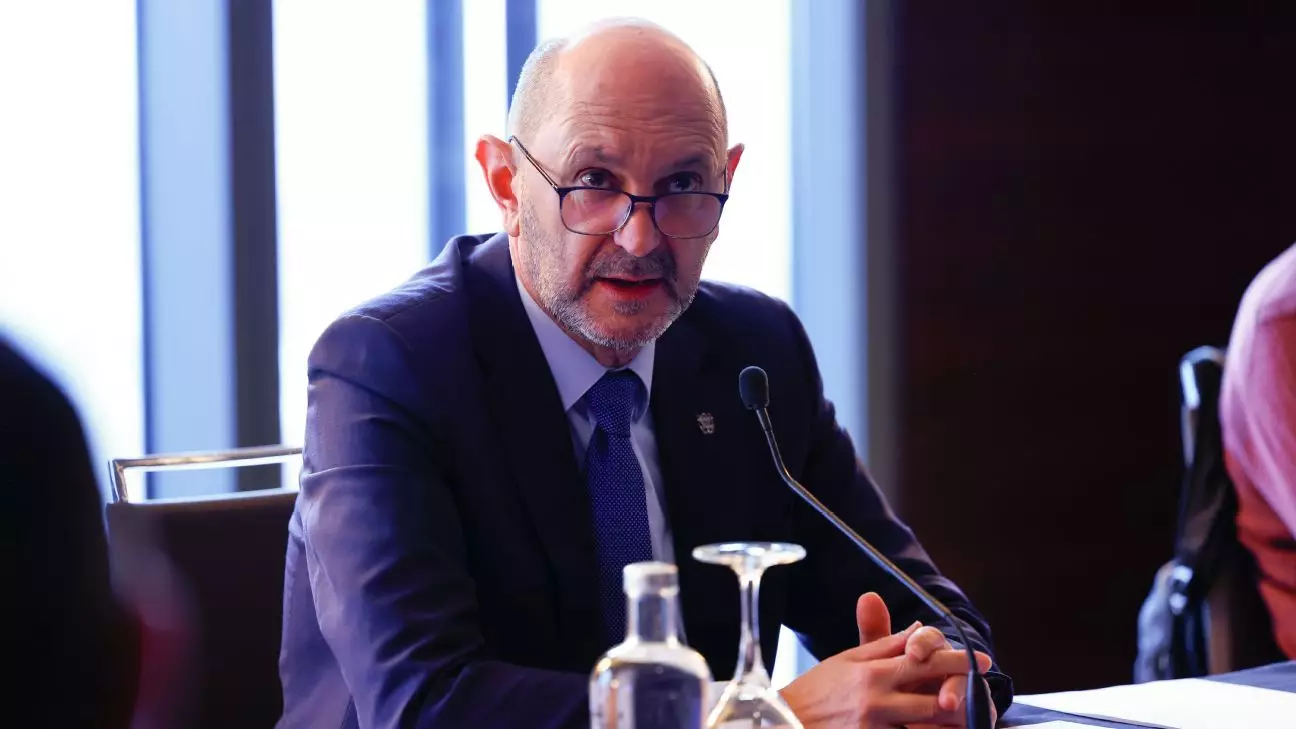The Royal Spanish Football Federation (RFEF) has ushered in a new leadership era with the election of Rafael Louzan as president. His election, held just days after FIFA confirmed Spain’s participation in the 2030 World Cup alongside Morocco and Portugal, signifies a crucial transition for Spanish football. Louzan, a veteran of the Galician Football Federation, brings experience to the role, having been part of the RFEF’s executive committee since December 2019. His ascension to the presidency comes after a competitive election against Salvador Gomar, marking a decisive moment for an organization long plagued by controversies.
Despite Louzan’s election triumph, it is essential to address the cloud of controversy surrounding his candidacy. Imposed with a seven-year ban from holding public office due to misconduct during his time as president of the Pontevedra Provincial Council, Louzan remains in a precarious legal situation. His appeal to Spain’s supreme court reflects an ongoing battle that could potentially overshadow his new role. Critics question whether an individual with pending legal issues is fit to lead the federation, raising fundamental concerns over governance in the sport.
The backdrop against which Louzan steps into power is staggering. The RFEF has been reeling from the repercussions of the unsolicited kiss incident involving former president Luis Rubiales and player Jenni Hermoso following Spain’s Women’s World Cup victory. This incident has not only tarnished the federation’s image but has also led to Rubiales’ resignation and subsequent trial. The dramatic fallout continues to ripple through the organization, with instability that questions the capability of existing leadership structures.
Further complicating matters, Pedro Rocha, Rubiales’ successor, received a two-year suspension from the Spanish Sports Council due to significant infractions, enhancing the perception of turmoil within the RFEF. The Spanish government intervened by forming a special committee to oversee the federation, illustrating the gravity of the current crisis and the necessity for a stable and effective leadership.
A Crucial Time for Spanish Football
As Louzan settles into his new role, the stakes are particularly high. FIFA has issued pointed warnings that Spain must elect a new RFEF president before the end of 2024 or risk losing its right to host the World Cup matches. This ultimatum places an extraordinary amount of pressure on Louzan and his administration, who must navigate not only internal challenges but also fulfill international obligations.
Louzan’s presidency arrives at a remarkable juncture, offering the potential for renewal and stability amidst chaos. Yet, he faces the critical task of reclaiming the federation’s integrity and public trust. The immediate future of Spanish football relies heavily on his ability to make significant and transparent changes to restore the RFEF’s standing both nationally and internationally. As stakeholders watch closely, it will be fascinating to track whether Louzan can rise to meet these enormous challenges and redefine the narrative for Spanish football in the coming years.

